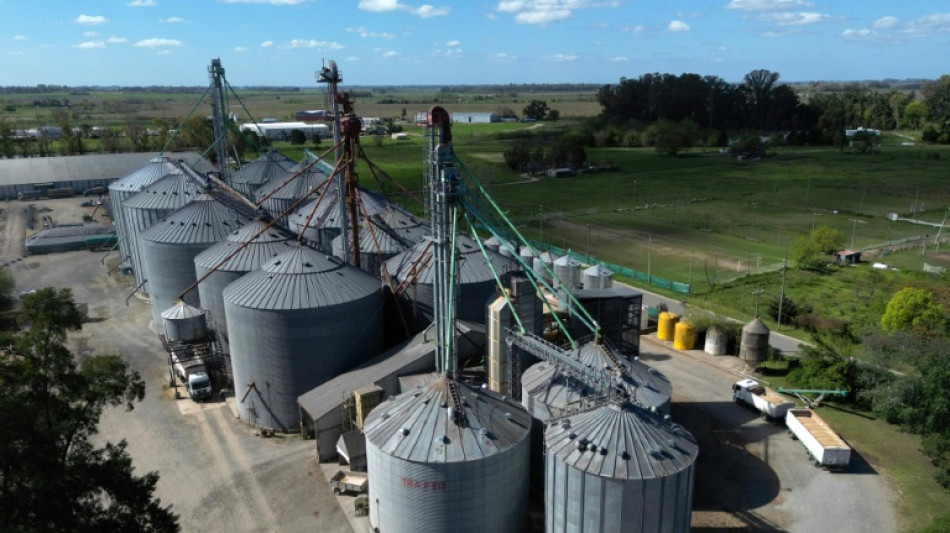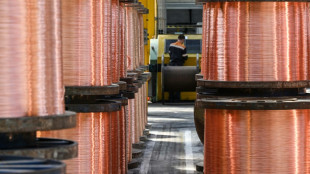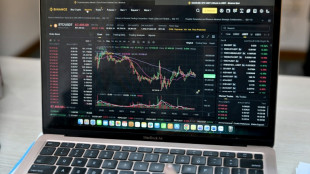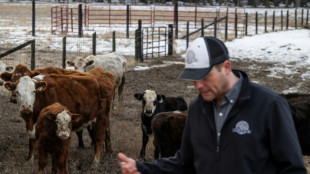

In Argentine farm town, Milei mania fizzles
For clues as to why Argentina's President Javier Milei faces a potential drubbing in next week's mid-terms, look no further than San Andres de Giles, a farming town set amid wheat fields two hours from Buenos Aires.
The town known simply as Giles backed Milei for president in October 2023, when the 54-year-old economist and punk rocker swept to power as an outsider with a radical plan to fix Argentina's broken economy.
Milei won 58 percent of the vote in Giles, higher than his national average of 55.65 percent.
But the fervor he elicited there has since largely fizzled, an ominous sign for US President Donald Trump's closest South American ally, whose reform agenda hangs in the balance.
As she rearranges books in the town's brightly lit library, Jacqueline Garrahan says she feels betrayed by a president she believed would embody change.
Garrahan is a retired teacher but works at the library to supplement her pension of $600 a month in order to support her student daughter.
In 2023, she voted for Milei as the candidate most likely to oust the centre-left Peronist movement, which has dominated Argentine politics for most of the post-war period but been dogged by accusations of corruption.
"I thought he would put an end to corruption, and today I feel completely disappointed," she said, alluding to the Karina Milei scandal.
"A lot of people say the same thing: 'Now what do we do? Who do we vote for?"
- 'Aggressive' style -
The past few weeks have been bruising for Milei.
A year ago, he was being cheered by the global right for dramatically reducing inflation and erasing a 14-year budget deficit by force of severe austerity programs.
But in the past month, Milei has had to be bailed out twice by the Trump administration to try to halt a run on the national currency, the peso, triggered by his party's trouncing by the center-left in the Buenos Aires provincial polls last month.
A corruption scandal involving his sister and right-hand woman, Karina Milei, and revelations that one of his top candidates in the midterms received payments from a suspected drug trafficker have further taken the shine off Milei's presidency.
In September, voters in Giles punished him by backing the Peronist party in elections to the Buenos Aires provincial legislature.
For Garrahan, who still defines herself as anti-Peronist, Milei's cardinal sin was to refuse to adjust the budgets of the country's cherished public universities to reflect high inflation.
She and many other voters have also been turned off by his inflammatory rhetoric targeting journalists, whom he says "we don't hate enough," and "degenerate prosecutors," among others.
"He's violent, aggressive," she said.
- 'We can't plan ahead' -
Milei, whose party is in a minority in parliament, needs to pick up a big chunk of seats in both houses of parliament on October 26 to be able to pass legislation and reassure markets about the future of his reforms.
But "with a depressed economy, corruption scandals, and considerable uncertainty about how things will be managed from October onward, it's very likely that Milei will be much less seductive," Gabriel Vommaro, a sociologist at the National University of San Martin, told AFP.
The political uncertainty is weighing on grain producers in South America's breadbasket.
Aldana Guanzini, 37, a producer of soybeans, corn, and wheat in Giles, who exports 80 percent of her harvest, was delighted when Milei eliminated export taxes in September, in order to boost sales and bring in much-needed dollars.
The relief was short-lived, however: three days later, after the government had reached its dollar target, the taxes were reinstated.
For Guanzini, who like many farmers backed Milei in 2023, the flip-flopping has been excruciating.
"We are living complete uncertainty. We can't plan ahead," she complained.
F.Coineagan --NG



